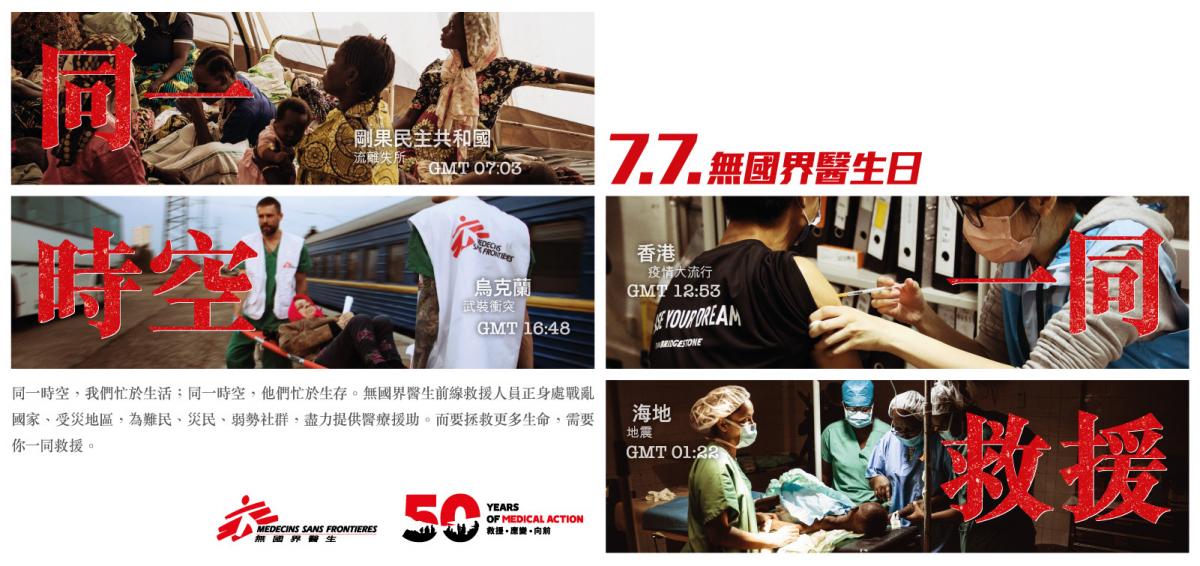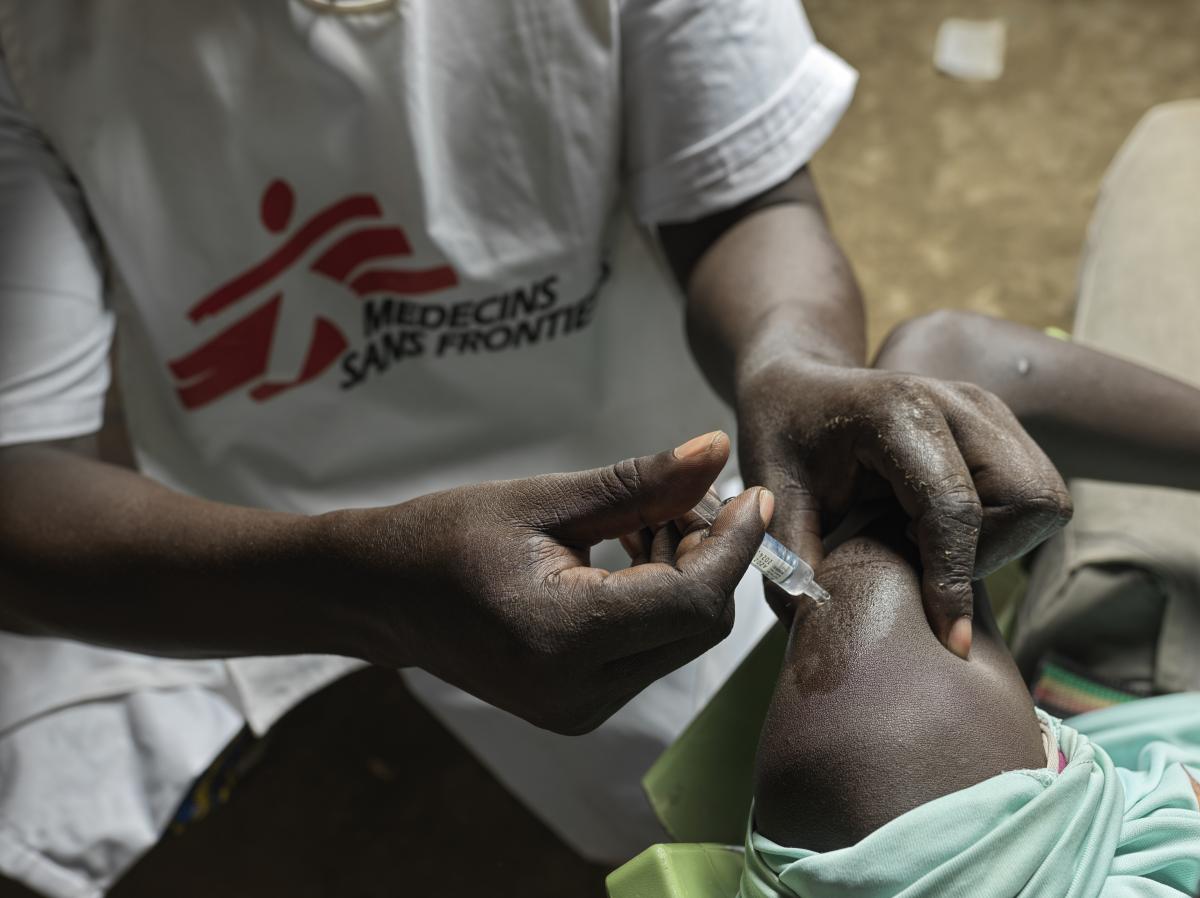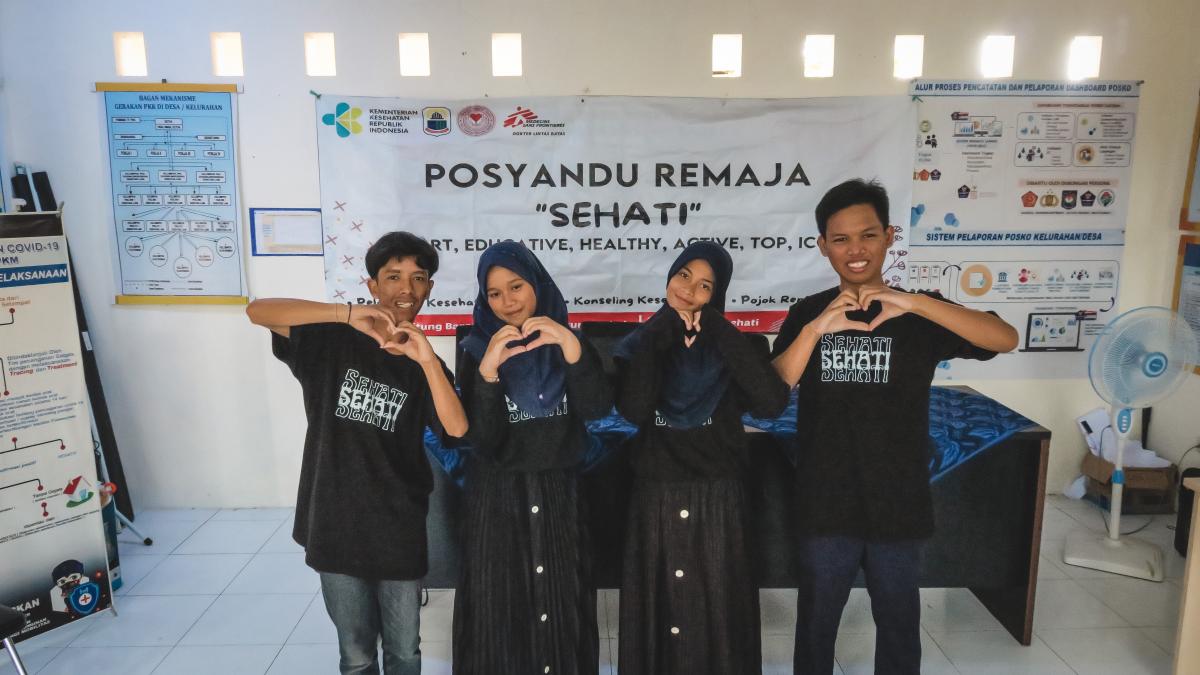Hong Kong
In 2022, the Operations Support Unit (OSU) of MSF Hong Kong continued its Methanol Poisoning Initiative (MPi) through a collaboration with MSF Bangladesh. Together, along with the Non-Communicable Disease Control Department (NCDC) of the Directorate General of Health Services (DGHS) Ministry of Health in Bangladesh, support was given to technical trainings and national treatment protocol development. A further in-person workshop was also conducted on the treatment protocol for participants from different medical colleges and tertiary-level hospitals. The monitoring and surveillance aspects of global incidents of methanol poisoning continued along with further translation of the website and related technical documents into various languages including Bengali, Arabic, Spanish, and French. MPi also started the development of an e-learning module on methanol poisoning for medical personnel that will be available in the fall of 2023.
Amidst the fifth wave of COVID-19 outbreak in Hong Kong in 2022, MSF rapidly organised a project team with doctors, nurses, psychologists and logisticians to support the fight against the pandemic. Our OSU has provided full support for the response.
We produced information packs in reference to the health advice from the Centre for Health Protection and the medical field to help people stay updated on the latest information about the pandemic.
A mini documentary titled“Alongside”was produced to summarise the response of the Hong Kong project team with the collective effort of different partners . The video was released in the 4th quarter of 2022 and has been uploaded on our YouTube channel.
We have also enhanced the content of MSF mental health website “How are you”, and suggested coping tips for post-pandemic psychological trauma were proactively promoted to the general public through social media . Three webinars on child anxiety were organised for the public in January 2022, followed by another two public webinars on post-pandemic psychological trauma in October 2022 and 505 people attended in total.
In order to foster creativity in children while encouraging their imagination, at the same time as broadening their horizons and their understanding of the daily tasks of MSF. '”Little Field Partners”' program launched a new initiative through a Colouring Competition with over 120 children taking part.
School talks were suspended or canceled during the fifth wave of the Covid-19 pandemic in early 2022. As the situation gradually improved in the second half of 2022, school talks were resumed with engaging over 1,900 children from eight schools.
For the first time ever, we brought our donors to a real-time virtual field visit under the guidance of Htet Aung Kyi, our MSF Nigeria's Medical Coordinator. He shared an exclusive live field report from Nigeria with attendees able to pay a virtual visit of MSF's nutrition center in Maiduguri. 73 participants were engaged.
In 2022, The theme for the MSF Day was “Save Lives Together Under the Same Sky”, that no matter who we are and where we are, we are living in the same world and should come together to help each other – including saving those striving to survive.

Four firsthand stories from the field were collected from international mobile staff from Hong Kong and other places to illustrate the work of MSF and reveal the challenges that our teams continue to face in crises. We also invited Hong Kong celebrities Dickson Yu and Ziya Chiang to narrate two of the testimonies. These audio stories are available on our social media platforms and Spotify channel.
MSF Day’s Closing Ceremony was held on July 9th. Volunteers from HK and other parts of Asia were invited to come together to join Mapathon to help creating maps for life saving missions. In total, 74 mappers took part, mapping 5,769 buildings in Napula Province, Mozambique.
The Orienteering Competition continued in a hybrid format, including both virtual and physical components. The theme of the competition centred around the plight of the Rohingya refugees. The narrative revolved around an International Mobile Staff’s quest to assist the refugees in their time of need. Through this portrayal, the competition aimed to raise awareness and generate empathy for the distress of these persecuted individuals. Participants had the flexibility to take part in the competition anytime in November and December. The event attracted around 500 participants.
Mainland China
In mainland China, MSF continued to share its experience and exchange ideas with various Chinese actors on the practical deployment of humanitarian aid and on global health governance. In August, MSF presented the main findings from the TB-PRACTECAL trial at China’s annual TB conference, which included the safety, efficacy and cost-effectiveness of the groundbreaking novel, 6 months, all oral BPaLM regimen for the treatment of drug resistant TB.
For more than 20 years, MSF have repeatedly seen hepatitis E outbreaks. In 2021, MSF ordered vaccines from Chinese manufacturer for future use in our projects. It is the only vaccine in the world for hepatitis E and was developed in China. The World Health Organization gave its recommendation in 2015 for its usage to curb outbreaks.
In 2022, MSF cooperated with the Ministry of Health of South Sudan to conduct the first hepatitis E vaccination campaign, and for the first time we saw a positive change in Hepatitis E outbreaks.
The first rounds of vaccination were carried out in March and April 2022. In the first two rounds, around 25,000 people (including pregnant women) were vaccinated. The third (and final) round was conducted in early October.
In this campaign, our team in Mainland China play a role in assisting the project staff in the procurement of vaccines, liaison with suppliers and the related logistic arrangements.

MSF HK has further begun two new initiatives; one is supporting field operations to engage with Chinese stakeholders in their countries of operation. This is done in recognition of the increased global influence of China, and the potential relevance of Chinese stakeholders to help achieve MSF’s core medical mission. Another is looking into the sourcing of medical products in China to broaden MSF’s supply base and increase the security of supply chain.
Over the year, we have remained committed to drawing public attention to people affected by crises, including those living under the crisis in Ukraine, refugees crossing the Mediterranean migration route, floods in Pakistan, etc. During the COVID-19 epidemic, we shared various forms of advice on adjusting people’s mental state. We also held online fieldworker sharings in medical school in Shanghai to increase people’s understanding of relief work. In addition, in December, we launched the “I love MSF quiz test on relief work” with over 1000 participants and answered people’s questions about MSF through questionnaires, videos, etc.
Southeast Asia
In 2022, we implemented a regional communications campaign on the Rohingya, spotlighting this forgotten crisis and the worsening situation for the Rohingya people in the region. This has resulted to strong visibility and impact on the Rohingya situation, with over 50 media coverage in the region, in all channels. This campaign was crucial for advocacy, positioning MSF as one of the voices in calling for regional and sustainable solutions to the Rohingya issue. We were also able to widen our media networks which we leveraged on for the Rohingya campaign, and our reach with the public through our digital accounts.
The Rohingya campaign was instrumental in increasing our media reach, with 50% more media coverage in Malaysia as compared to the previous year, and 30% increase in media coverage in Indonesia. We’ve also had more radio and TV interviews in 2022.
In terms of digital and social media, our Instagram account improved its reach and engagement. We were able to grow our organic reach by nearly 500% and followers by nearly 400%.
We also continued providing comms support to our operations in the region, producing communications packages for the Typhoon Rai response and the closing of the Marawi project in the Philippines, and also for the adolescent health project in Indonesia as well as support for digital health promotion.





